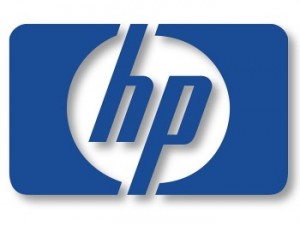Income Tax Tax Fraud
by admin
Comments Off on Accounting Improprieties at H.P. or a Tax Fraud?
Accounting Improprieties at H.P. or a Tax Fraud?
Major news is out today that H.P., had taken $8.8 billion accounting charge after discovering “serious accounting improprieties” and “outright misrepresentation” at Autonomy that it bought for $10 billion in 2011.The accounting charge essentially wiped out its profits (really? no 38% corp. tax to pay). Previously H.P. had taken an $11 billion charge related to its acquisition of Electronic Data System in 2008.
It sounds to me H.P. has become a victim of serial “Accounting Improprieties” wiping out any of its profits and putting the company in red on the books.
The Autonomy takeover was the brainchild of Leo Apotheker CEO of H.P at the time.
Even before H.P. announced its acquisition of the software maker, rumors were there that Autonomy’s growth was due partly to fuzzy accounting. Mike Lynch, Autonomy’s CEO at the time, denied any such irregularities in an interview then. Mr. Lynch left H-P in May. Mr. Apotheker was ousted a few weeks after the takeover announcement. Also responsible for the takeover was H.P.’s former strategy chief, Mr. Shane Robinson.
If you have any idea of acquisitions and mergers of big companies, you would wonder how this could happen with so many safeguard in place to review financials.
Let’s break it down.
H.P.’s internal team was aware of the allegations at the time, and concern when H-P announced its intent to acquire Autonomy in August 2011 that it was overpaying. At the time, one of the people familiar with the matter said H.P. was looking for a way to unwind the deal before it closed but couldn’t find any material accounting issues.
H.P. general counsel (lawyers who are experts in M&A) John Schultz said in an interview that he was aware that there were rumors about accounting issues at Autonomy before the deal closed, but that H.P. was shown “significant documentation from former Autonomy executives refuting the allegations.” In hindsight, “It’s fair to say those refutations were questionable,” he said.
When the H.P. assessed Autonomy before the acquisitions, the financial results appeared to pass muster.
H.P. had hired Deloitte to do the auditing of Autonomy’s financial statements.
As part of the due diligence process for the deal, H.P. also hired KPMG to audit Deloitte’s work.
Neither Deloitte nor KPMG caught the accounting discrepancies or irregularities
Hewlett-Packard said it first began looking into potential accounting problems in the spring, after a senior Autonomy executive came forward. H.P. then hired a third-party forensic accounting firm, PricewaterhouseCoopers, to conduct an investigation.
The company said it discovered several accounting irregularities. For example, H.P. said Autonomy was taking licensing revenue upfront, before receiving the money (Groupon any one?). It had the effect, the company said, of significantly bolstering Autonomy’s gross margin.
The former management team of Autonomy, which includes the company’s founder Mike Lynch, rejected H.P. claims about the accounting issues. Mr. Lynch said he “was shocked to see this statement today and flatly rejects these allegations, which are false. H.P.’s due diligence review was intensive, overseen on behalf of H.P. by Deloitte, KPMG, Barclays and Perella Weinberg. H.P.’s senior management has also been closely involved with running Autonomy for the past year. It took 10 years to build Autonomy’s industry-leading technology and it is sad to see how it has been mismanaged since its acquisition by HP.”
H.P. turned over its findings to Securities and Exchange Commission in the United States and the Serious Fraud Office in Britain with the last week. In a conference call with analysts, Ms. Meg Whitman said the company might consider legal actions against several parties.
In conclusion, with H.P.’s claim I take out the following lessons.
1. Autonomy’s financial teams were super achiever in cooking the books that they fooled H.P. internal audit team and audit from Deloitte and KPMG.
2. If H.P.’s claim is right then H.P. internal audit team Deloitte and KPMG are all involved in a fraud.
3. PricewaterhouseCoopers is no good without the whistle blower’s claim to find the accounting irregularities.
4. I believe Mike Lynch that H.P. did due diligence during take over. If not H.P. is to only blame themselves.
5. H.P. shareholders should fire every board members and executives from management team if H.P.’s claim is true.
6. H.P. might be cooking the books to defraud shareholders and US taxpayers (give a thought to this, really).
